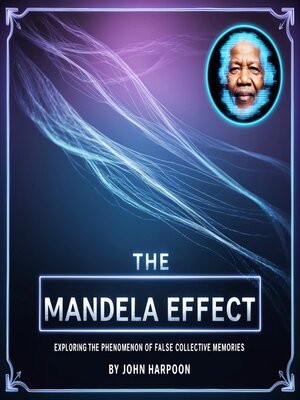The Mandela Effect
audiobook (Unabridged) ∣ Exploring the Phenomenon of False Collective Memories
By John Harpoon

Sign up to save your library
With an OverDrive account, you can save your favorite libraries for at-a-glance information about availability. Find out more about OverDrive accounts.
Find this title in Libby, the library reading app by OverDrive.



Search for a digital library with this title
Title found at these libraries:
| Library Name | Distance |
|---|---|
| Loading... |
The Mandela Effect is a psychological phenomenon in which large groups of people remember an event, fact, or detail differently from documented reality. The term originates from a widespread belief that Nelson Mandela died in prison during the 1980s, despite historical records confirming his release in 1990 and later presidency of South Africa. Since then, the Mandela Effect has come to describe various collective false memories, ranging from misremembered movie quotes to altered brand logos and even significant historical events. While some view it as mere confusion or misinformation, others see it as evidence of alternate realities or shifts in consciousness.
The phenomenon gained widespread recognition through the internet, where individuals began sharing their experiences of remembering things differently than historical records suggest. Social media platforms, online forums, and viral discussions have amplified these false memories, making them more widespread and reinforcing the belief that something unusual is occurring. Many people report feeling unsettled upon discovering that their memories do not align with reality, further fueling speculation about the cause. Some theories suggest that quantum physics, parallel universes, or glitches in reality could be responsible. Others argue that the Mandela Effect is a result of how human memory works, shaped by cognitive biases and external influences.
Memory is not a perfect recording of past events; rather, it is a reconstructive process that can be influenced by suggestion, misinformation, and group reinforcement. Psychological research has shown that memories can be distorted over time, leading to the formation of collective false memories.







